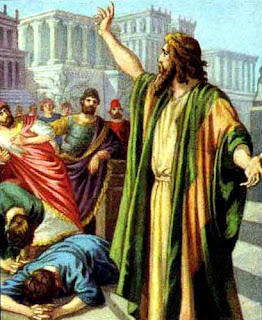
Jonah is among the Old Testament’s fully rounded and very believable characters! He is commissioned to warn Nineveh of impending judgment.
Anita Mathias: Dreaming Beneath the Spires
Anita Mathias's Blog on Faith and Art
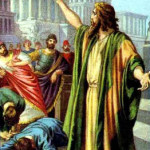

Jonah is among the Old Testament’s fully rounded and very believable characters! He is commissioned to warn Nineveh of impending judgment.

 |
| Martin Luther |
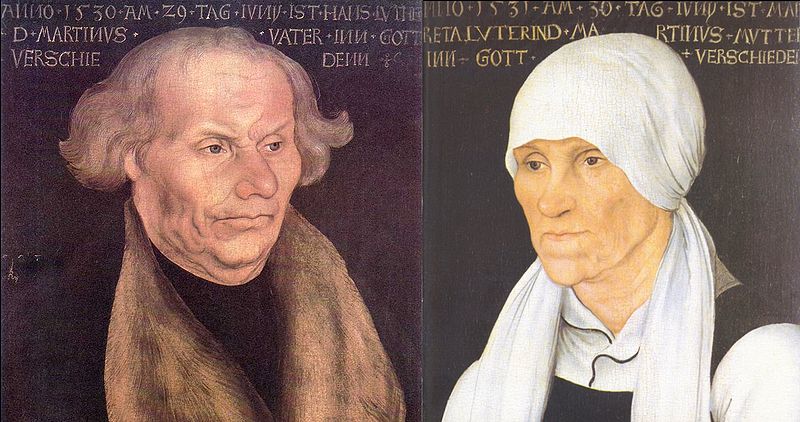 |
|
Portrait of Martin Luther’s parents of Lucas Cranach
After a dramatic conversion, during a lightning storm, he commits his life to God. (Good move!) “My father raged and acted like a fool. How was he to know that one monk in the family would bring him more fame and shame than a thousand advocates.” Luther writes.
|
 |
|
Johann Von Staupitz
|
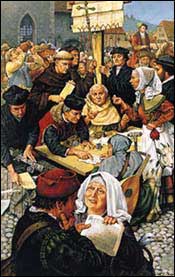 |
|
Big Business–The Catholic Church of Luther’s Day.
|
 |
| Luther at the Diet of Worms |

Going from the peaks of glory, attention and notoriety to anonymity and invisibility is a frequent Christian experience.
So Luther goes from the drama and intense experience, the elation and energy of the Diet of Worms to a solitary existence hidden in the Wartburg Castle. He regresses into depression, despair and anguish, introspection and melancholy, and had a strong sense that the devil was tormenting him.


 The Very Worst Part of Christian or Spiritual Blogging
The Very Worst Part of Christian or Spiritual Blogging

In 1931 he began the first book of his massive Church Dogmatics. It grew year by year out of his class lectures; though incomplete, it eventually filled four volumes in 12 parts, printed with 500 to 700 pages each. Many pastors in the 1930s, ’40s, and ’50s, desperate for an antidote to liberalism, eagerly awaited the publication of each book.
Though Barth made it possible for theologians again to take the Bible seriously, American evangelicals have been skeptical of Barth because he refused to consider the written Word “infallible” (he believed only Jesus was). Nonetheless, he remains the most important theologian of the twentieth century.
|
|||

 Image
Image
(Sorry, this comes with a 30 sec ad. added by its creator, not me.)
I hope to offer it to those for whom it may have meaning.
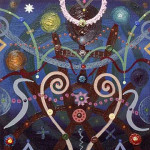

About a decade ago, Roy and I presented ourselves for marital counselling with the very busy senior pastor of the mega-church we attended in Williamsburg, Virginia.
Just weeks before the mission was to start, however, I experienced a major crisis of faith—the most intense of my life. Some months before, Charles Templeton, a fellow evangelist whom I respected greatly had begun to express doubts about the Bible, urging me to “face facts” and change my belief that the Bible was the inspired Word of God. “Billy,” he said, “you’re fifty years out-of-date. People no longer accept the Bible as being inspired the way you do. Your faith is too simple.” I knew from my own reading that some modern theologians shared his views.
For months doubts about the Bible swirled through my mind, finally coming to a boil during a conference at which I was speaking in the mountains east of Los Angeles. One night, alone in my cabin at the conference, I studied carefully what the Bible said about its divine origin. I recalled that the prophets clearly believed they were speaking God’s Word; they used the phrase “Thus says the Lord” (or similar words) hundreds of times. I also knew that archaeological discoveries had repeatedly confirmed the Bible’s historical accuracy.
Especially significant to me, however, was Jesus’ own view of Scripture. He not only quoted it frequently, but also accepted it as the Word of God. While praying for His disciples, He said, “Sanctify them by the truth; your word is truth” (John 17:17). He also told them, “I tell you the truth, until heaven and earth disappear, not the smallest letter, not the least stroke of a pen, will by any means disappear from the Law” (Matthew 5:18). Shouldn’t I have the same view of Scripture as my Lord?